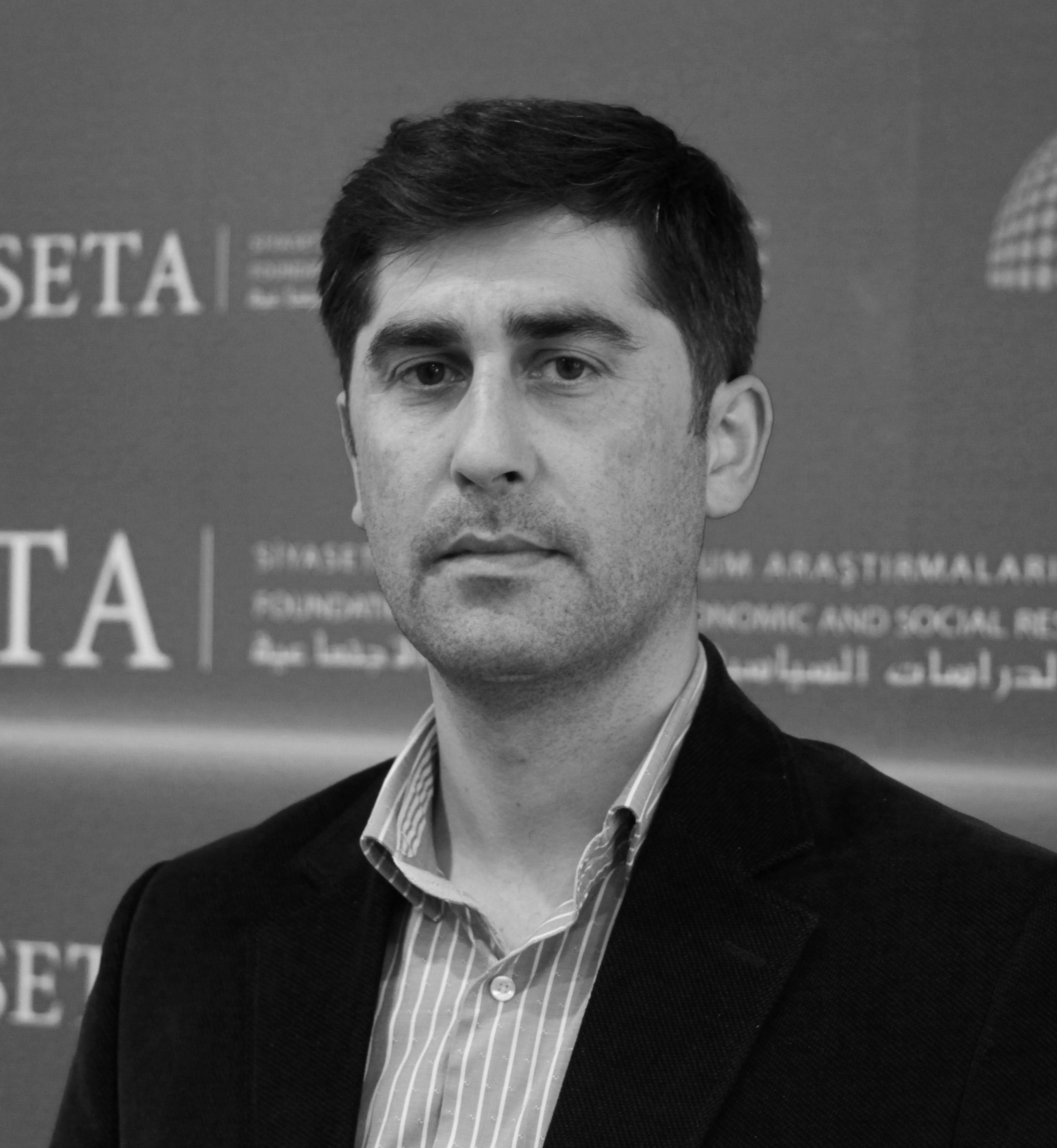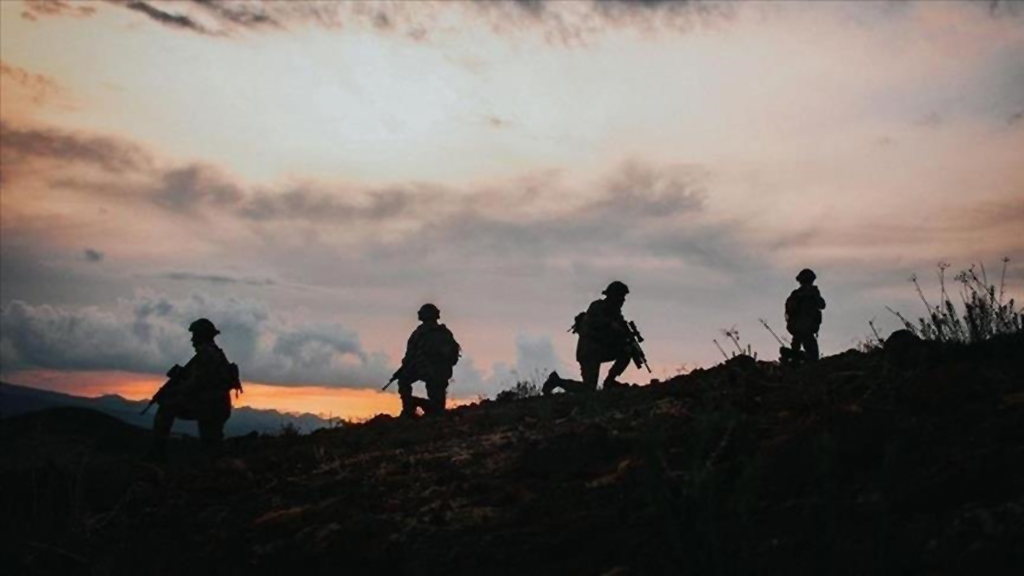Recent developments have brought the ongoing discussions on normalizing Türkiye-Syria relations back to the forefront. Following his meeting with Russian President Vladimir Putin’s special envoy, Alexander Lavrentiev, Syrian leader Bashar Assad, according to the Syrian News Agency, stated, “Syria is open to all initiatives for Syria-Türkiye relations based on its sovereignty over the entire territory of the country and the fight against terrorism and terrorist organizations.” Similarly, the Syrian News Agency quoted Lavrentiev as saying that Russia supports all initiatives for Syria-Türkiye relations, adding: “We see that the conditions for successful mediation are more favorable than ever. Russia is ready to work to advance the negotiations. The goal is to succeed in restoring relations between Syria and Türkiye.”
Then, on June 28, President Recep Tayyip Erdoğan made a very clear statement: “There is no reason why diplomatic relations between Türkiye and Syria should not be re-established,” and added, “We will act together in the same way as we did in the past. We cannot have any problem like interfering in Syria’s internal affairs.”
The second major development occurred in a different context. Following the statements, allegations spread on social media that a Syrian asylum-seeker had “sexually harassed” a Syrian asylum-seeker girl in Kayseri, a conservative and nationalist province in Türkiye. These allegations led to mass demonstrations and violence. By the morning, it was revealed that serious attacks had been carried out against Syrian asylum-seekers. On the same day, demonstrations were organized in northern Syria against Türkiye. Turkish flags were attacked, and some military groups within the Syrian National Army attacked the Turkish Armed Forces (TSK). Although the events in Syria were seen as a reaction to the incidents in Kayseri, one of the main reasons was Erdoğan’s statements on “normalization.” The latest development was the announcement that the leader of the main opposition Republican People's Party (CHP), Özgür Özel, would visit Damascus to meet with Assad.
The recent developments in Türkiye-Syria relations necessitate a re-evaluation of the so-called normalization process. Here are some key points we can highlight so far:
- The ongoing diplomatic contact between Türkiye and Syria has accelerated.
- Russia remains a significant actor in managing the diplomatic contact process between Türkiye and Syria. The interactions following Foreign Minister Hakan Fidan’s meeting with Putin during his visit to Moscow have expedited this diplomatic engagement.
- Considering the statements made by Erdoğan and Assad and the ongoing back-channel diplomatic contacts, preparations for a meeting between the leaders appear to be underway.
- In addition to Russia, Iraq has also been facilitating the acceleration of the diplomatic process between Türkiye and Syria. It is also evident that the Gulf countries are involved in this process.
- With encouragement from Russia and the Arab countries, the Assad administration seems more willing to rebuild relations with Türkiye.
- The perception of refugees in Türkiye is deteriorating day by day. Considering the economic crisis and other factors, the tolerance threshold toward Syrian refugees in Türkiye has significantly eroded. Many reasons contribute to this, but a prominent one is the rising potential of populist political discourse to mobilize the public against asylum-seekers.
- The information environment regarding asylum-seekers is highly susceptible to manipulation and disinformation. The information shared on social media platforms about the identity of Syrian asylum-seekers indicates that this environment is also being used for intelligence purposes.
- Social support for Türkiye-Syria normalization varies. While there is some popular support in Türkiye, there are also those who oppose normalization with Assad. On the Syrian side, although the actors vary, there is little support for normalization.
- Diplomatic contact between both countries is viewed as an ongoing process. Neither side expects the problems to be resolved quickly.
A contested concept
Considering the above dynamics, the diplomatic process between Türkiye and Syria will be challenging and arduous. To ensure this process is managed effectively, it is crucial to maintain realistic expectations and create a road map aligned with the realities on the ground. In this context, I believe the concept of normalization is not the appropriate term to describe the diplomatic contact between Türkiye and Syria. I have several reasons for this:
Normalization typically refers to a process possible between two stable entities. Assad controls only two-fifths of his country, with Syria divided into four areas of control. As such, Assad does not represent Syria as a whole politically. The Syrian economy has completely collapsed, and the regime has established an economy based on profit exchanges, notably involving drugs. Some sources suggest the Assad administration survives on revenues comparable to a medium-sized narco-state. Normalization implies a return to a previous state, which in the case of Türkiye-Syria relations, would mean reverting to the pre-2011 status. This is a very high expectation and almost impossible to realize structurally. The logic and scope of Türkiye-Syria diplomatic contact are significantly different from Türkiye’s normalization process with the Gulf countries or Egypt. There has never been a territorial conflict between Türkiye and either Egypt or the Gulf countries. The Türkiye-Syria situation is entirely distinct.
Given these considerations, it is not correct to label the Türkiye-Syria diplomatic contact process as normalization. Instead, defining it with another concept, such as “diplomatic engagement,” would be more appropriate. A new concept could provide both sides the flexibility needed to manage the process more effectively.
Difficult issues
The diplomatic dialogue process between Türkiye and Syria involves several complicated issues, including the fight against terrorism, the return of refugees, a solution based on U.N. Security Council (UNSC) Resolution 2254, and reconciliation between Assad and the opposition supported by Türkiye. All of these issues are complex and require careful process management. Most importantly, considering the multidimensional and multilateral nature of the problems in Syria, the existing problems are even more intricate.
The fight against terrorism is a top priority for Türkiye, with the goal of eliminating the PKK terrorist group's Syrian wing YPG as a threat to Türkiye and the territorial integrity of Syria. This goal implies an equation without the PPK/YPG in Syria. Although no progress has yet been made on this issue within the framework of diplomatic contacts between Syria and Türkiye, this does not mean that there will be no progress. For the Assad administration, the PPK/YPG is also a threat, but compared to Türkiye’s approach, for Assad, it is a matter of survival. Therefore, counterterrorism is not a priority for Assad. Additionally, Assad’s current capacity to fight terrorism is insufficient. This inadequacy forces Syria to collaborate with Türkiye, especially in the fight against the PKK/YPG. In terms of the PKK/YPG presence west of the Euphrates, a joint process can be carried out between Türkiye and Syria. However, it is known that the situation east of the Euphrates is more complex.
The return of refugees is another critical issue that needs to be addressed carefully. This process should be handled in a way that ensures the safety and dignity of the returning refugees, considering the challenging conditions on the ground. There is no clarity on exactly where, under what conditions and when asylum-seekers will return. Many refugees do not have a home to return to, and those who do often live with their families alongside Iranian Shiite militias, especially in Aleppo. Iran is openly implementing a demographic change policy in Syria, which complicates the return of refugees. The Syrian infrastructure has been largely destroyed and is not yet suitable for the return of refugees. There is no economic order to sustain daily life in Syria. More importantly, many refugees do not want to return to regions under Assad’s rule. A significant portion of asylum-seekers in Türkiye state that they absolutely do not want to return to Assad-controlled areas. The willingness of the Assad regime to facilitate the return of refugees is extremely weak. The regime’s focus has been on consolidating control and addressing immediate security concerns rather than creating conducive conditions for refugee returns. Syria’s devastated infrastructure and collapsed economy present significant challenges. Reconstruction efforts have been slow, and the lack of basic services and economic opportunities makes it difficult for refugees to consider returning.
In summary, the return of asylum-seekers is a multifaceted issue with significant challenges. A sustainable solution requires addressing the infrastructural, economic and political realities on the ground, as well as ensuring the safety and willingness of refugees to return
A solution based on UNSC Resolution 2254, which calls for a cease-fire and political settlement in Syria, is essential for achieving long-term peace and stability. This resolution provides a framework for negotiations and the eventual reconstruction of Syria. Considering the approaches of the UNSC and the Assad regime toward their relations with the Turkish-backed opposition, it is understood that the Türkiye-Syria diplomatic dialogue will take a long time. This is because the international community has largely forgotten Resolution 2254, and the Geneva process seems to have lost its functionality. Given the ongoing conflicts in Ukraine and Gaza, international actors are unlikely to revive Resolution 2254. Therefore, it appears that Türkiye-Syria diplomatic contact will proceed on a bilateral basis, focusing primarily on issues of terrorism and refugees.
Process management
The Türkiye-Syria diplomatic contact is delicate and requires careful handling. Managing expectations, addressing the Assad administration’s tactics, considering Iran’s role and ensuring effective communication with the opposition are all critical to the success of this fragile process. Both sides perceive that the so-called normalization process will quickly resolve their problems. However, it is crucial to communicate that the process will be long to manage public expectations and garner support. Issues such as terrorism and refugees cannot be solved in a few meetings. The Assad regime uses normalization as a tactic to gain legitimacy, as seen in the constitution-writing process and the normalization with Arab League member states. There is a high probability that Assad will prolong the process and eventually break it off under the guise of seeking real negotiations. Although Tehran supports diplomatic contacts between Türkiye and Syria, it has its own priorities and interests in the current problems. Iran may pursue a policy that prioritizes its interests, potentially making moves that could weaken the process management. Türkiye has made the opposition a central part of the process, necessitating a healthier communication strategy at the diplomatic level. Without this, incidents similar to what happened last week are inevitable.
Türkiye-Syria diplomatic contact appears to have accelerated, but we are still at the beginning of the road. This will be a long process, and the management of this process will be even more important than the process itself.









